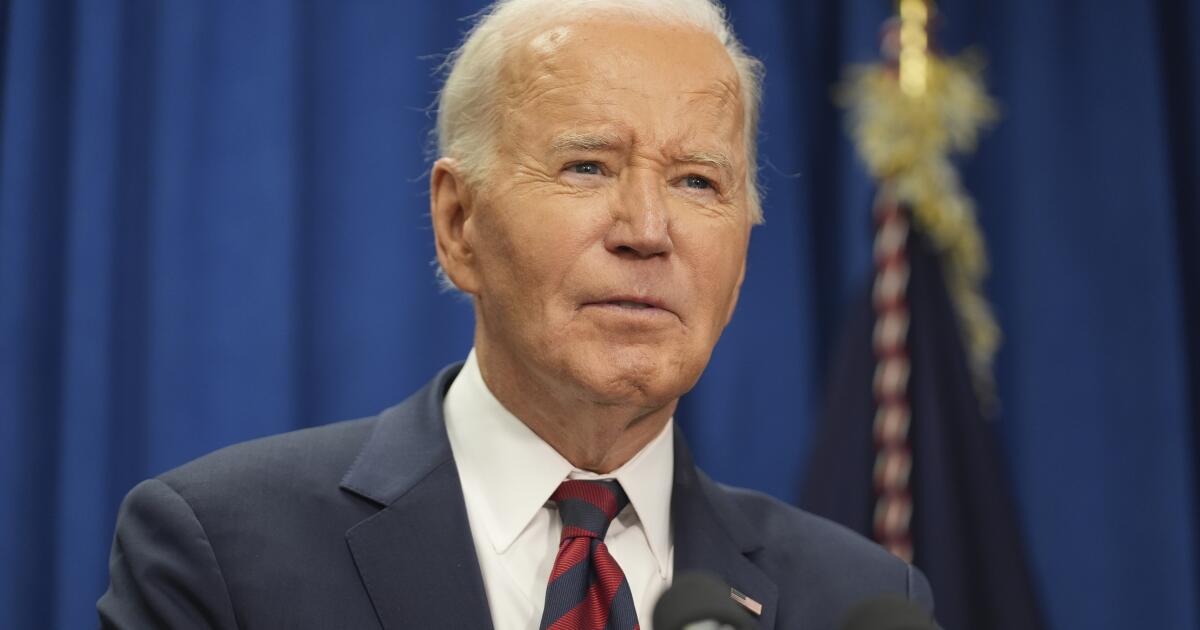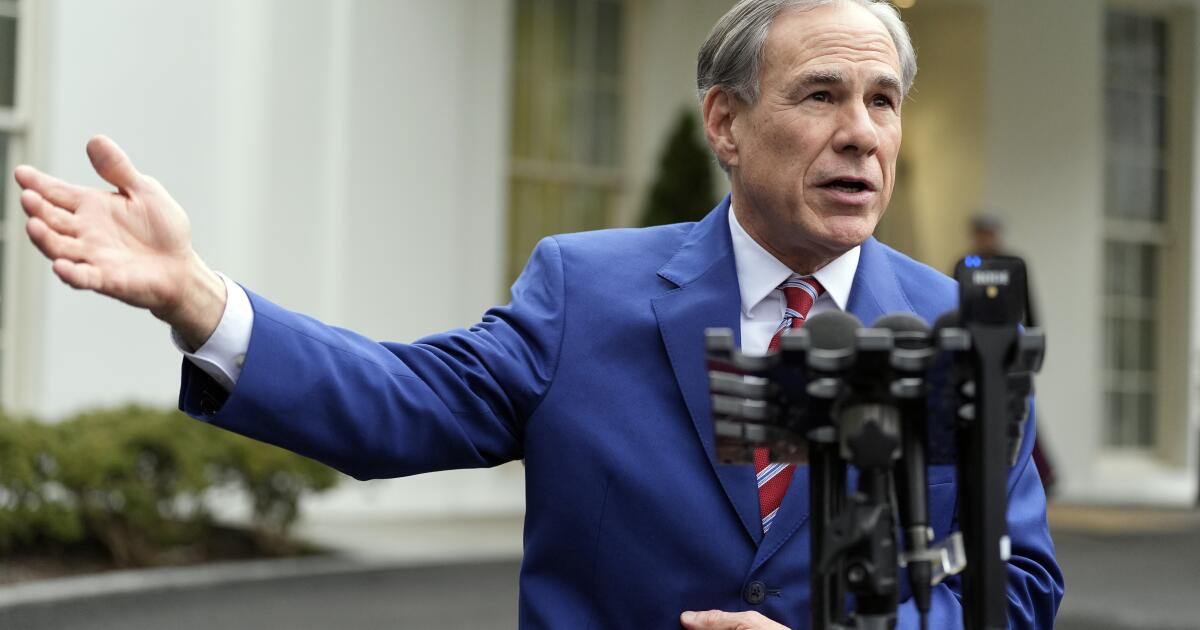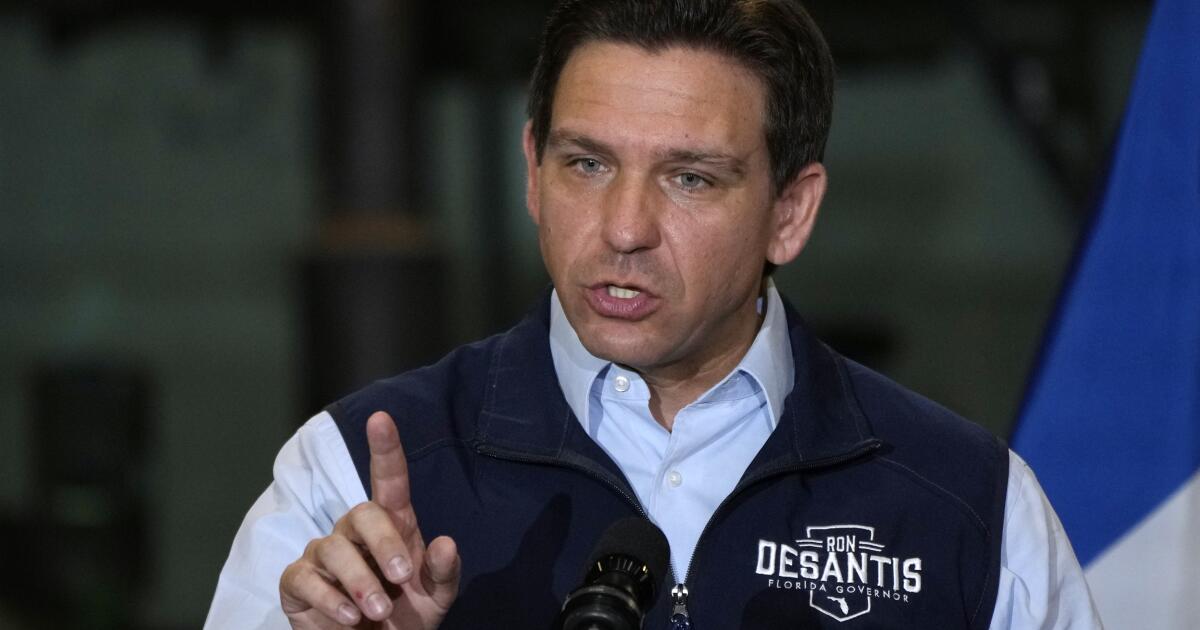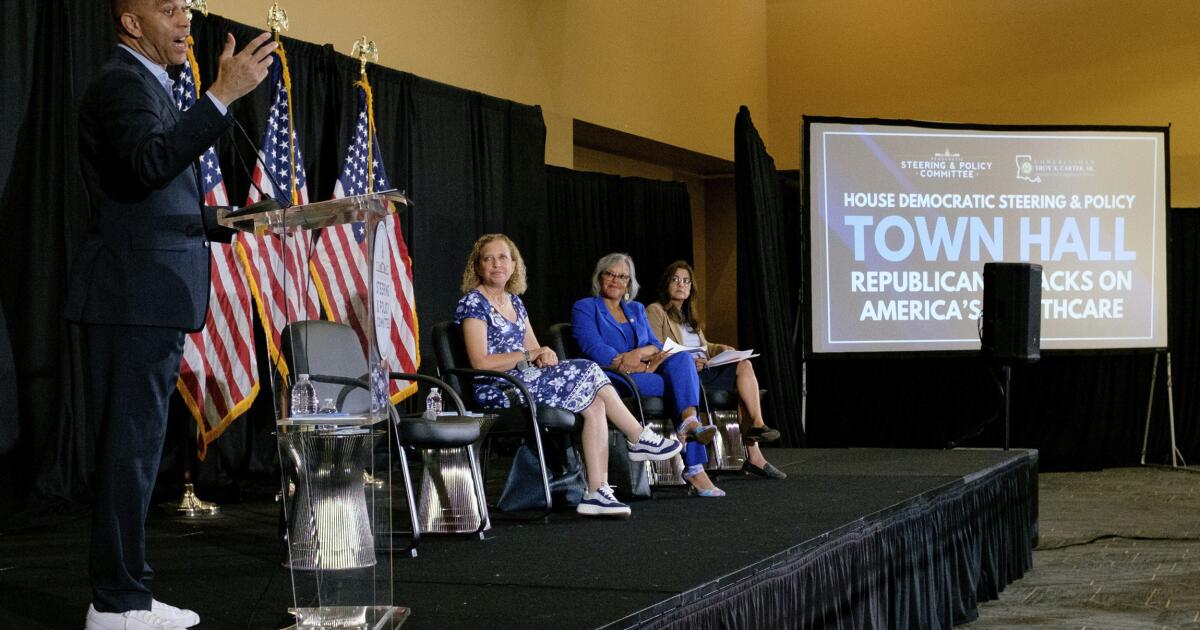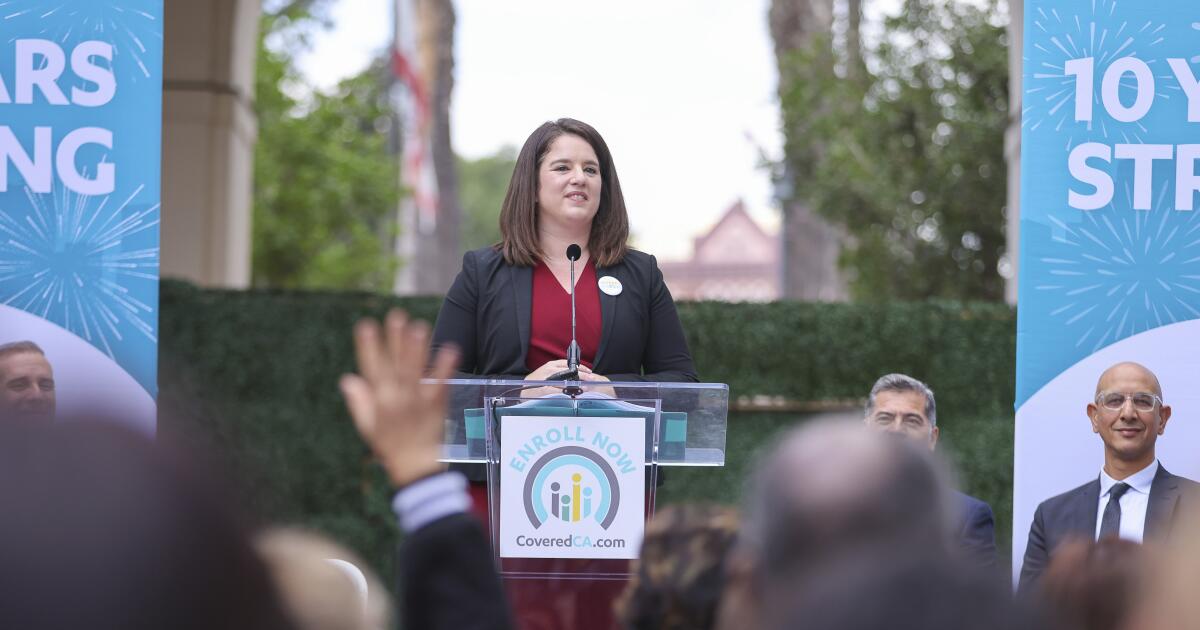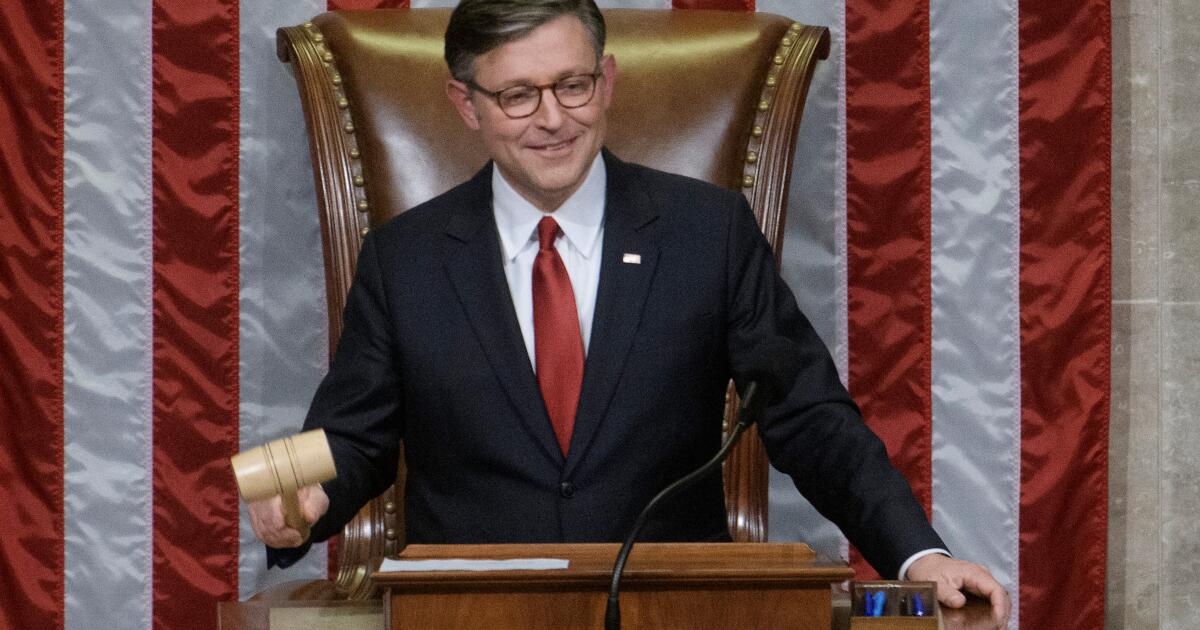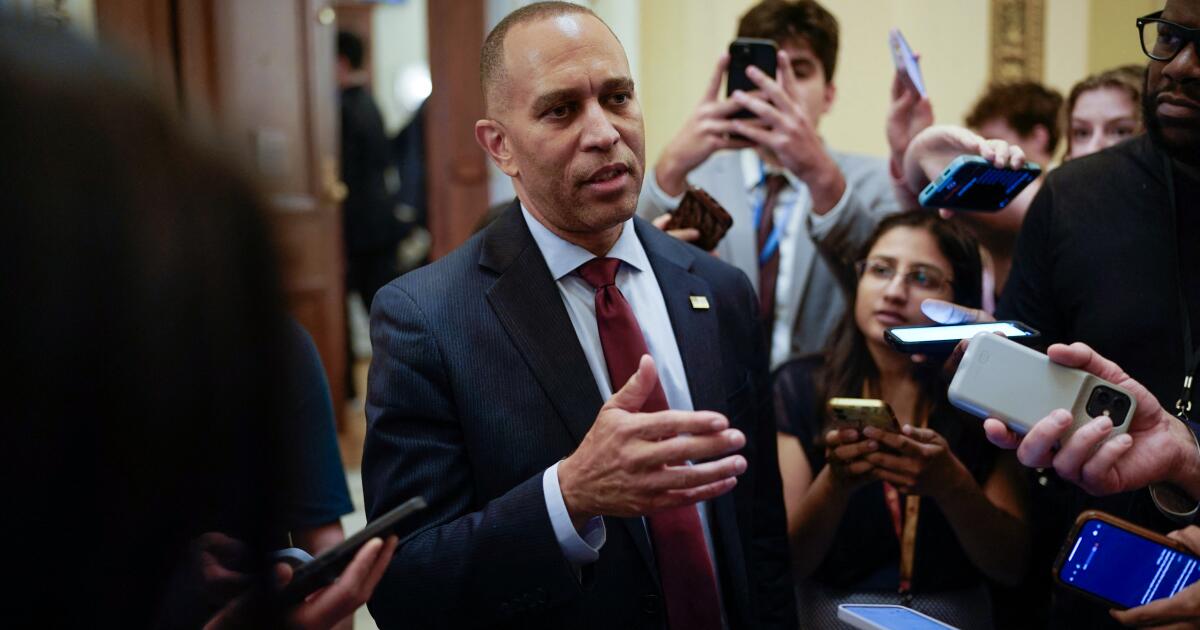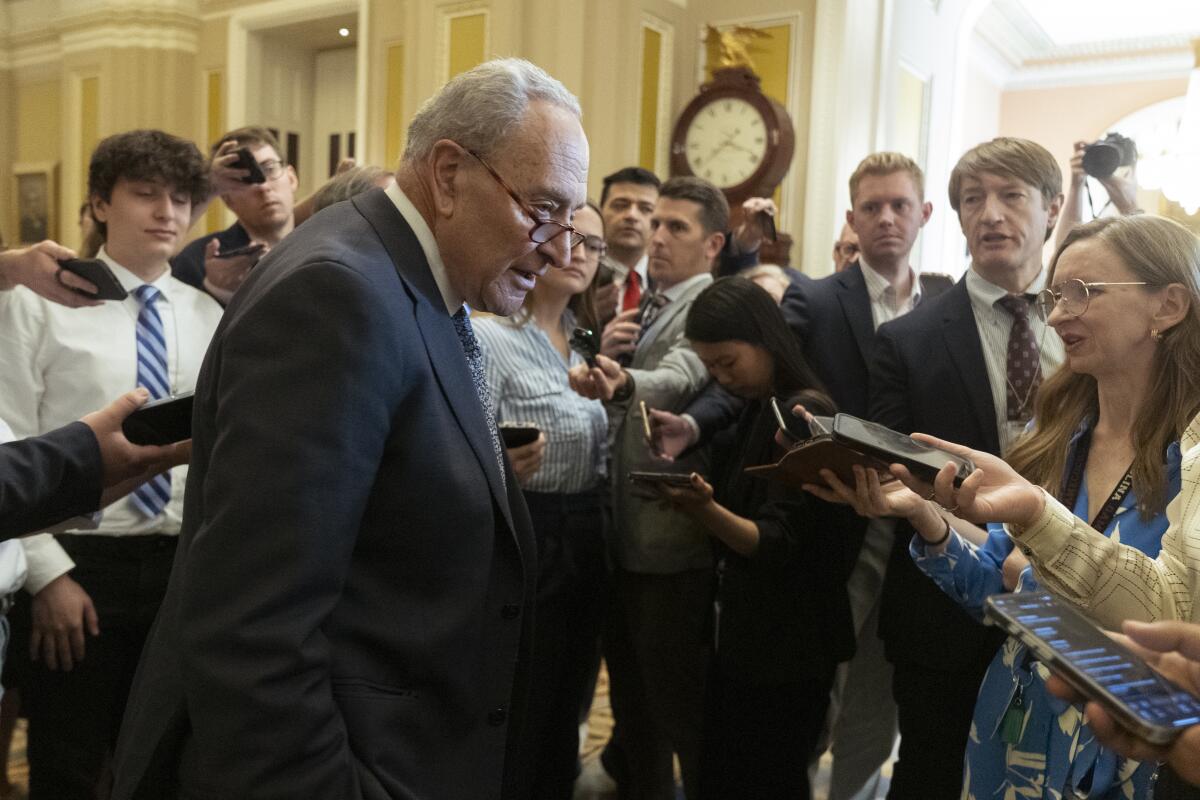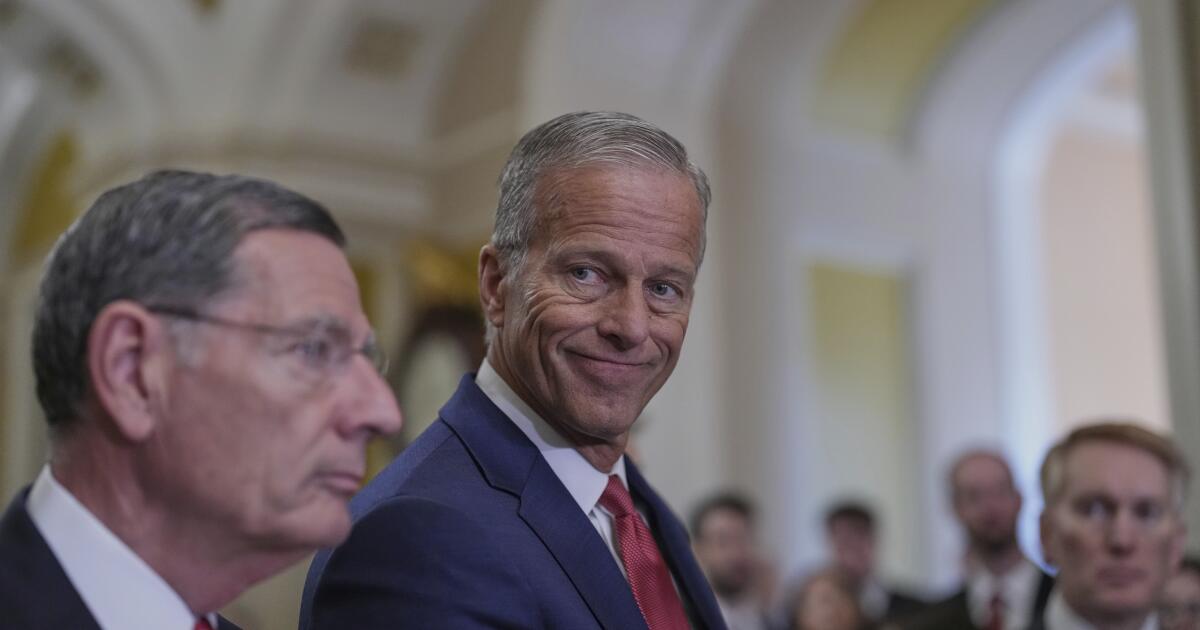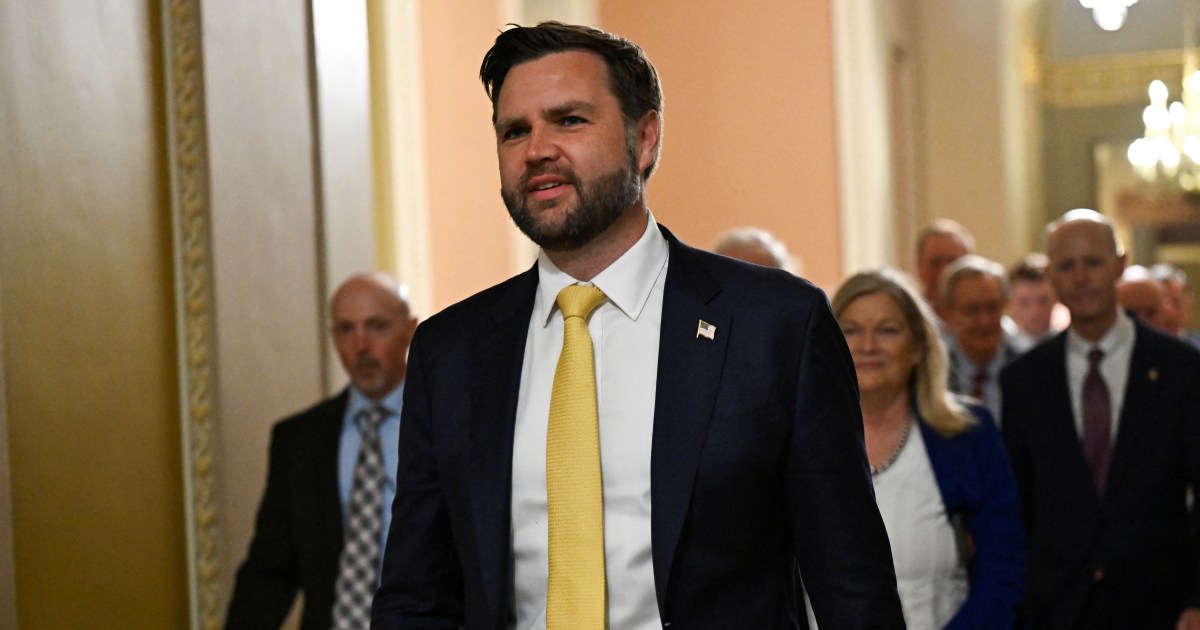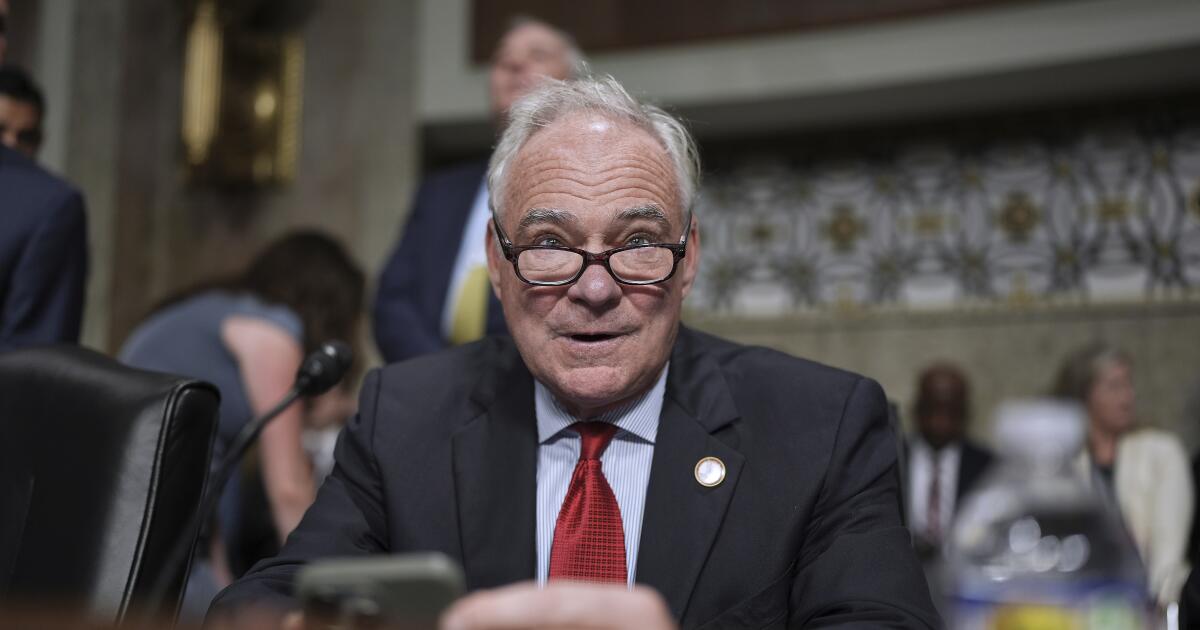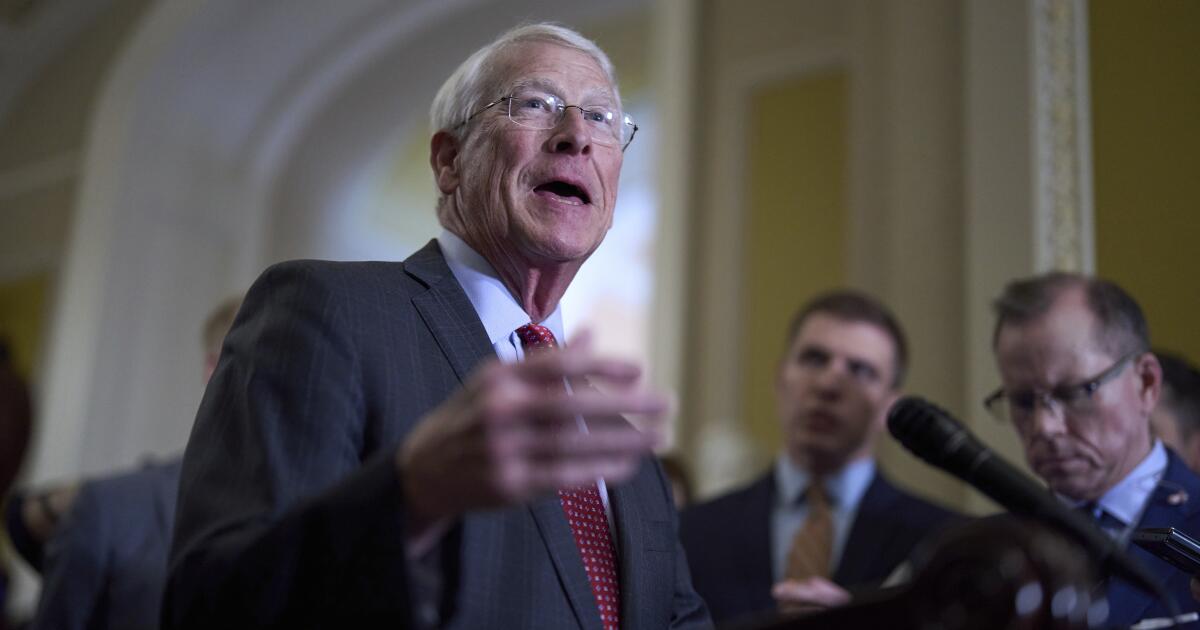Republicans can’t stop talking about Joe Biden. That may be a problem
ATLANTA — It’s been six months since Joe Biden left the Oval Office. Republicans, including President Trump, can’t stop talking about him.
The House has launched investigations asserting that Biden’s closest advisers covered up a physical and mental decline during the 82-year-old Democrat’s presidency. The Senate has started a series of hearings focused on his mental fitness. And Trump’s White House has opened its own investigation into the Biden administration’s use of the presidential autopen, which Trump has called “one of the biggest scandals in the history of our country.”
It all fits with Trump’s practice of blaming his predecessors for the nation’s ills. Just last week, he tried to deflect criticism of his administration’s handling of the Jeffrey Epstein sex trafficking case by casting blame on others, including Biden.
Turning the spotlight back on the former president carries risks for both parties heading into the 2026 midterms. The more Republicans or Democrats talk about Biden, the less they can make arguments about the impact of Trump’s presidency — positive or negative — especially his sweeping new tax cut and spending law that is reshaping the federal government.
“Most Americans consider Joe Biden to be yesterday’s news,” Republican pollster Whit Ayres said.
Republicans want Biden’s autopen to become a flashpoint
Seeking to avenge his 2020 loss to Biden, Trump mocked his rival’s age and fitness incessantly in 2024, even after Biden dropped his reelection bid and yielded to then-Vice President Kamala Harris.
He and other Republicans seemed poised to spend the summer touting their new tax, spending and policy package. But Trump, now 79 and facing his own health challenges, has refused to let up on Biden, and his allies in the party have followed suit.
Republican Rep. Derrick Van Orden of Wisconsin called the Biden White House’s use of the autopen “a massive scandal,” while Republican Rep. Nick Lalota insists his New York constituents “are curious as to what was happening during President Biden’s days.”
White House press secretary Karoline Leavitt recently confirmed the administration would pursue an investigation of the Biden administration’s use of the presidential autopen. Trump and other Republicans have questioned whether Biden was actually running the country and suggested aides abused a tool that has long been a routine part of signing presidentially approved actions.
“We deserve to get to the bottom of it,” Leavitt said.
Biden has responded to the criticism by issuing a statement saying he was, in fact, making the decisions during his presidency and that any suggestion otherwise “is ridiculous and false.”
Congressional committees investigate
On Capitol Hill, the House Oversight Committee has convened hearings on use of the autopen and Biden’s fitness for office. Van Orden cited the Constitution’s Article II vesting authority solely with the president.
“It doesn’t say chief of staff. It doesn’t say an autopen,” he said.
The House panel subpoenaed Biden’s physician and a top aide to former first lady Jill Biden. Both invoked Fifth Amendment protections that prevent people from being forced to testify against themselves in government proceedings.
“There was no there there,” said Democratic Rep. Wesley Bell of Missouri, a member of the committee who called the effort “an extraordinary waste of time.”
The committee’s chairman, Rep. James Comer, wants to hear from former White House chiefs of staff Ron Klain and Jeff Zients; former senior advisers Mike Donilon and Anita Dunn; and other former top aides Bruce Reed, Steve Ricchetti and Annie Tomasini, among others. Republicans confirmed multiple dates for the sessions through late September, ensuring it will remain in the headlines.
Investigations could crowd out GOP efforts to define Trump positively
That GOP schedule comes as both parties work feverishly to define Trump’s start to his second term.
His so-called “One Big Beautiful Bill” is a mix of tax cuts, border security measures and cuts to safety net programs such as Medicaid, a joint state-federal insurance program for lower-income Americans. Polls suggest some individual measures are popular while others are not and that the GOP faces headwinds on tilting the public in favor of the overall effort.
A recent poll from The Associated Press-NORC Center for Public Affairs Research found that about two-thirds of U.S. adults view the bill as a win for the wealthy and another found that only about one-quarter of U.S. adults felt Trump’s policies have helped them. In the policy survey, he failed to earn majority support on any of the major issues, including the economy, immigration, government spending and health care. Immigration, especially, had been considered a major strength for Trump politically.
It is “rather tone deaf,” said Bell, for Republicans to go after Biden given those circumstances.
“Americans want us to deal with the issues that are plaguing our country now … the high cost of living, cost of food, the cost of housing, health care,” Bell said, as he blasted the GOP for a deliberate “distraction” from what challenges most U.S. households.
The effort also comes with Trump battling his own supporters over the Justice Department’s decision not to publicly release additional records related to the Epstein case.
“The Epstein saga is more important to his base than whatever happened to Joe Biden,” said Ayres, the GOP pollster.
Even Lalota, the New York congressman, acknowledged a balancing act with the Biden inquiries.
“My constituents care most about affordability and public safety,” Lalota said. “But this is an important issue nonetheless.”
Democrats don’t want to talk about Biden
With Republicans protecting a narrow House majority, every hotly contested issue could be seen as determinative in the 2026 midterm elections.
That puts added pressure on Republicans to retain Trump’s expanded 2024 coalition, when he increased support among Black and Hispanic voters, especially men, over the usual Republican levels. But that’s considerably harder without Trump himself on the ballot. That could explain Republican efforts to keep going after Biden given how unpopular he is with Trump’s core supporters.
Democrats, meanwhile, point to their success in the 2018 midterms during Trump’s first presidency, when they reclaimed the House majority on the strength of moderate voters, including disaffected Republicans. They seem confident that Republicans’ aggressiveness about Biden does not appeal to that swath of the electorate.
But even as they praise Biden’s accomplishments as president, Democrats quietly admit they don’t want to spend time talking about a figure who left office with lagging approval ratings and forced his party into a late, difficult change at the top of the ticket.
Democratic Rep. Don Beyer of Virginia said Biden was productive while acknowledging he “was not at the top of his game because of his age.” He said Democrats want to look forward, most immediately on trying to win control of the House and make gains in the Senate.
“And then who’s our standard bearer in 2028?” Beyer said. “And how do we minimize the Trump damage with what we have right now?”
Barrow and Brown write for the Associated Press. Brown reported from Washington.
